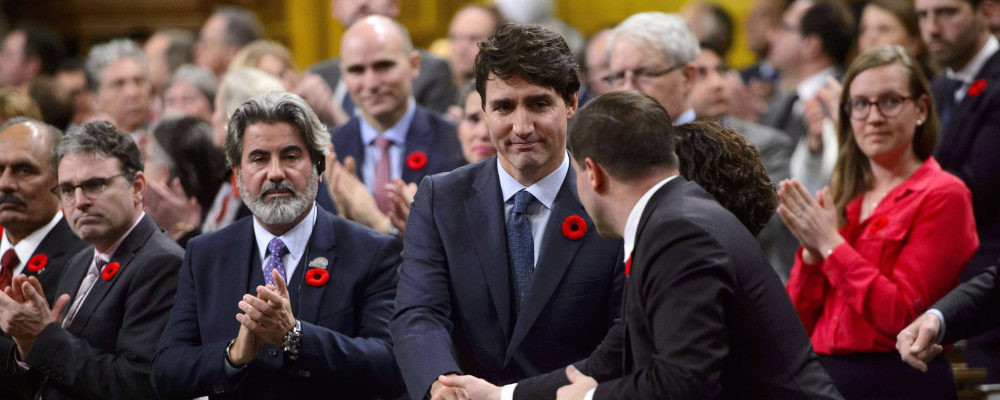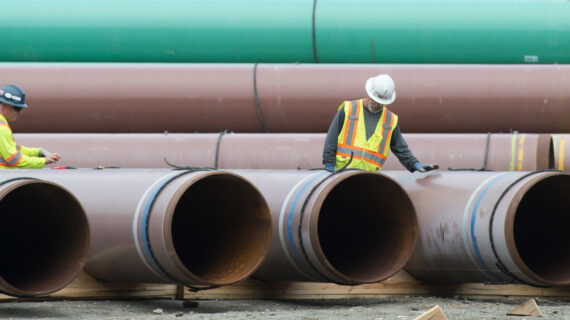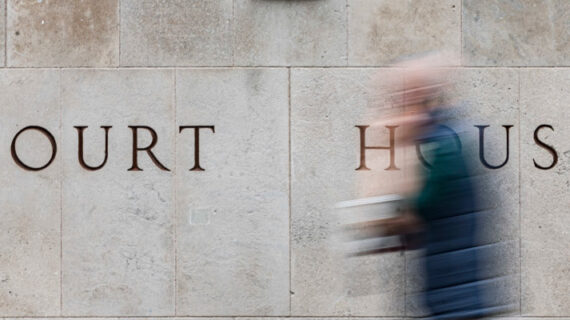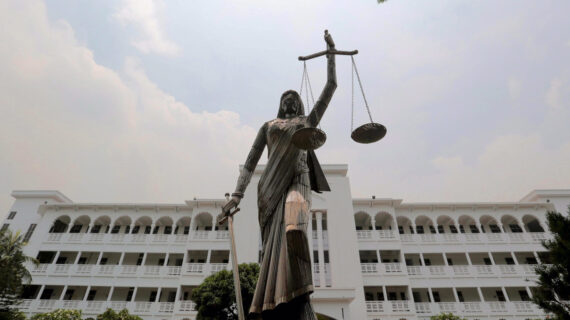In the summer of 2018, the prime minister promised to give a formal parliamentary apology to Canadians of Italian descent for the treatment of Italian Canadians during the Second World War. Yesterday, he kept that promise.
But imagine the absurdity of such apologies, which are a long tradition kept by prime ministers of all partisan stripes. The prime minister offers an apology on behalf of all Canadians from all walks of life and nationalities, who had nothing to do with the transgression, to other Canadians who mostly came here years after the offence and who barely know what happened.
For yesterday’s apology, the only winners in this scenario are a few self-serving politicians while Canada’s reputation is stained as a racist country with a distorted view of history.
MORE SIGNAL. LESS NOISE. THE HUB NEWSLETTER.
As you see from my surname, I take no pleasure in saying, as I have said before, that today’s apology is a mistake and an insult to Canada that has given so much to the Italian-Canadian community.
Why an apology, and why now? One answer is that it fits into the progressive agenda to find fault with the very founding of our nation. In the U.S., the 1619 Project argues that the American experiment and prosperity was founded on slavery and the principles of white supremacy. Here in Canada, it’s on the evils of colonialism by Britons and Europeans and ending with the tragedy of residential schools. Once heroic figures, explorers as Giovanni Caboto, Christopher Columbus and Samuel de Champlain are now seen as purveyors of exploitation, racism and genocide. Apologies, shame, and guilt are ways to wash away the past sins since they fit nicely into the current political zeitgeist.
There was never a groundswell of support from the Italian community for an official apology from Canada. The impetus comes from a handful of Italian-Canadian backbenchers hoping to deliver a victory for their constituents in the next federal election.
To claim racism was at the heart of the internment shows a profound ignorance of Canada’s past.
The prime minister says that Italian-Canadians “deal with the ongoing discrimination related to mistakes by our government that continue to affect them to this day.”
This statement belies the fact that the general prosperity and advancement of the Italian community is a model success story by any measure. Today Canadian-Italians are seen as fully integrated Canadians with all that entails.
Yes, Italians faced discrimination as all new immigrants did along with Hungarians, Asians, Germans, Irish, Jews, Blacks, Muslims, Ukrainians, Poles, Doukhobors, Newfoundlanders, Norwegians, French Canadians or any other national, gender or cultural group you choose to add to the list. The reason for the internment was that in 1940, Benito Mussolini decided to join forces with Hitler and declare war on the U.K., and that meant Canada. From 1920 until the outbreak of the war, the Italian fascist government, through its embassy and trade commissions, was recruiting and promoting fascist ideology throughout the Italian community, especially among the elite. Fascist propaganda was also promoted by prominent Italian newspapers in Montreal, Toronto, and Vancouver financed directly from Rome.
The vast majority of Italian-Canadians took no part in supporting the fascist cause. Still, many did send money and their gold to support the Italian Red Cross and Mussolini’s invasion of Ethiopia. Canada was at war with Italy and it would have been irresponsible to assume that no Italian was a threat to Canada. Immigrants from whatever country, don’t culturally or psychologically become instant citizens as soon as they cross the border or swear allegiance to the Crown. The homeland always tugs at the hearts of immigrants who leave their native lands to make a new life. Loyalty to a new country is earned over years, if it ever does.
In hindsight, Canadian action seemed mild compared to Churchill’s call to “collar the lot” in the U.K. when thousands of British Italians were rounded up after the panic when France fell to Germany. In the fog of war no one has the time or luxury to make perfect decisions that won’t be second-guessed generations later.
Let’s keep in mind that thousands of Canadian soldiers are buried in graves throughout Italy, fighting to free Italians from their fascist government. Those young Canadians never had the chance to put food on their tables to support families they would never have.
No one denies families didn’t suffer but of the 591 internees, many were released after a few months and most by the end of 1943. A few harder cases were kept until the end of the war.
Although it’s true that no one was prosecuted after the war, this could be read two ways: either all were innocent, or those who broke the law were shown mercy. Most likely the latter given that fascism was so thoroughly discredited after the war even hardened believers were silenced.
To claim that racism was at the heart of the internment shows a profound ignorance of Canada’s past and a slander on Canada’s English and French heritage. History isn’t a static subject with a single cause and effect. University of Toronto professor Michael Marrus, in his book Lessons of the Holocaust teaches that history is an unending process of study to get a complete picture of the past that changes over time.
If we try to root the past in a single cause and effect, we stop learning and understanding. Apologies always end with the desired wish that humanity will learn from their mistakes and not repeat them.
Authentic apologies, given when harm is done to another, are offered unconditionally even without the expectation of forgiveness. Political apologies are a different matter since most come with conditions and quid pro quos.
Pope John Paul II was a master of apologies in his 27 years as Pontiff asking forgiveness from the Crusades, the Inquisition, Galileo’s trial, sex scandals, anti-Semitism, to the oppression of women. But the Pope’s intention was more in the spirit of clearing away the sins of the past to bring the church into the 21st century. The Pope did apologize for the Holocaust, but he didn’t take the final step to allow historians complete access to the Vatican archives to investigate the full behaviour of Pope Pius XII during the war.
President Obama thought he was being courageous by apologizing for the West’s transgressions against Islam in his famous Cairo speech soon after his first election. His hope was to gain favour in the Muslim world, but he soon discovered what the Middle East scholar Bernard Lewis knew all along, that apologizing is seen as a sign of weakness in that part of the world. A rare exception was the apology given by French President Jacques Chirac in 1995, when he confessed to France’s collective guilt in the deportation of over 75,000 French Jews — many of them children — to death camps in the Second World War. The apology was made knowing many in France strongly resisted it, such as former French president Francois Mitterrand who put the blame on the Vichy government.
A political apology loses all value when it comes with expectations of political gain. A show of empathy makes good theatre, and much of politics is about putting on a good show.
The prime minister has made ten formal apologies since taking office. This apology makes it eleven. Too many apologies risks cheapening their value and worth. There are crimes throughout history that go beyond apologies and demand true justice. This incident in Canadian history doesn’t rise to that level. It is a moment better suited for regret and understanding, not the grandstanding of a parliamentary apology.




